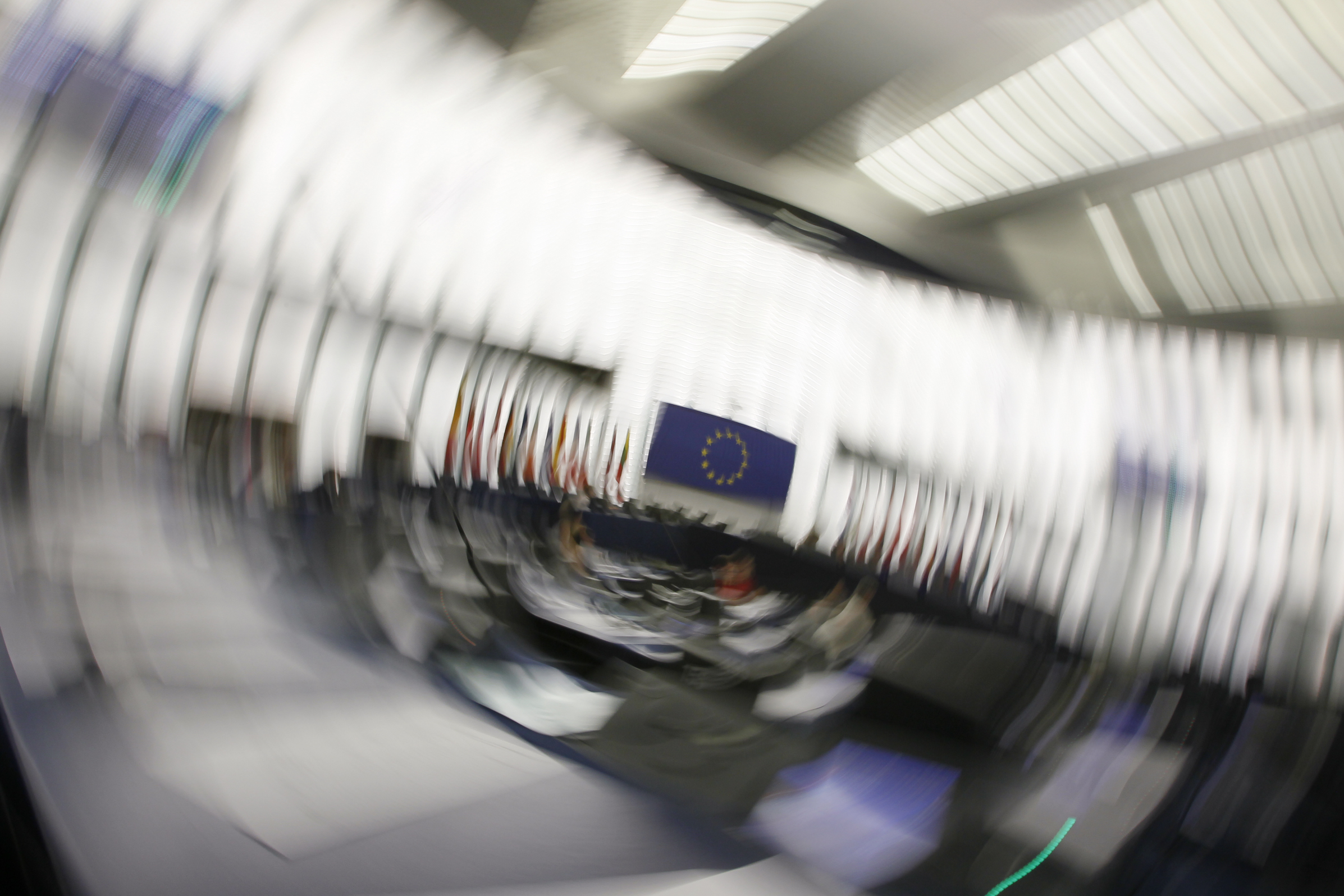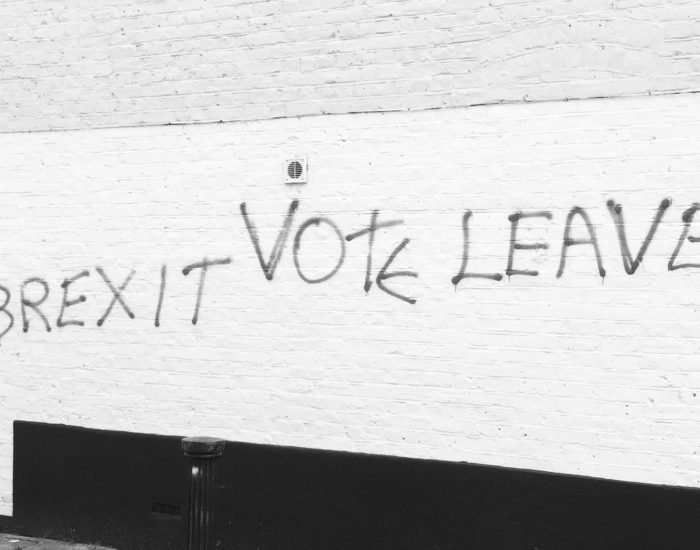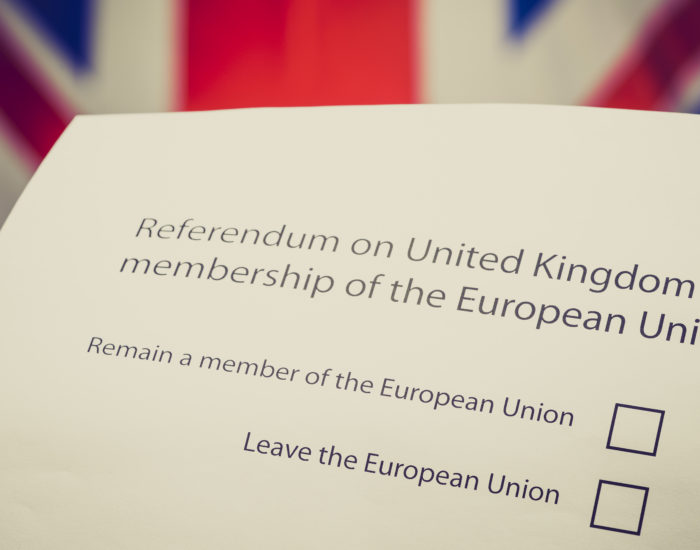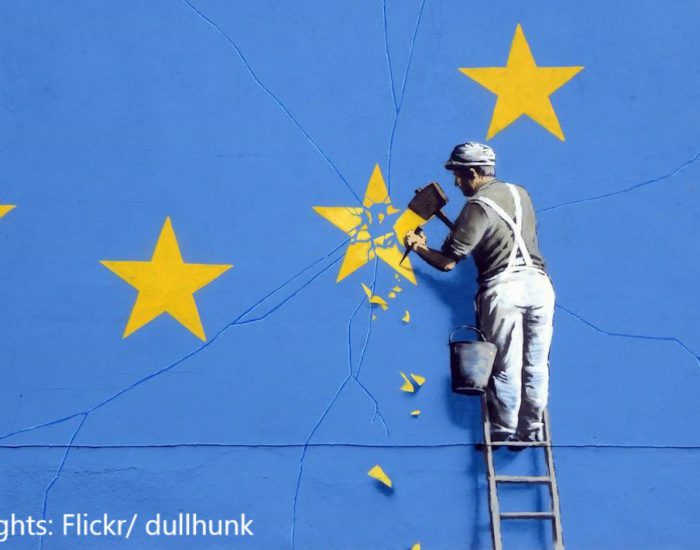d|part note on Brexit
By Dr Jan Eichhorn.

When it became clear on Friday morning that the United Kingdom had decided to leave the European Union in a referendum a mixture of shock and joy could be heard depending on the commentators talked to. On most parts of the continent concerns seemed to override positive views, but what was common in most contributions to the discussions that have followed since was a mix of explanations for the outcome and speculation about the implications. The implications of the referendum will be long lasting and impactful on many domains, including the diplomatic and economic but also regarding questions about civic engagement and democratic legitimacy.
As a think tank dedicated to using empirical evidence to shape discussions about political participation, making research useful for practice in this field, the quality of debates during this referendum have to be evaluated as appalling – irrespective of which side of the argument oneself may have been. There is no need for a repetition of the numerous claims and counterclaims that have been made which were massive exaggerations at best and objectively false at worst. While political debate always has room for opinion and normatively distinctive interpretations there are also statements that can clearly be appraised as true or false.
This campaign was ridiculously short. Those initiating it who claimed that this was about democracy and genuine participation have disqualified themselves by this setup. The question of whether a country should be a member of the EU or not is more complex than a trade-off between the question of overall economic impacts and the question of whether border controls can be established or not. The two themes ended up dominating the debate, but because of the brevity the messages had to be simple and on neither side of it did they do justice to the actual mechanisms underlying the claims made.
Economic impacts are not a simple function of trade, but stand in an interplay with currency developments, wages, substitution effects and global developments. At the same time the extent of immigration does not simply depend on EU membership – projections into the future are meaningless if they assume that no circumstances could change and border control is not the same as political will to actually change anything.
In a climate where messages remain superficial, it is not the argument that wins, it is the extent of the credibility of the messengers combined with the points they try to put forward. The remain campaign included many people who for many years scapegoated the EU for all ills, while the leave side really increased their share of the polls when the immigration message, that many of their leading figures had a long track record of emphasising, became their dominant and shared talking point combined with the notion of “taking control of one’s own country” – a point that is so vague and allows for so many projections into it that it nearly evades any empirical engagement (except for the actual question about the volume of immigration that was never entirely clarified during the campaign).
Sceptics may say that such complicated issues cannot be solved through referenda. However, a more nuanced view may suggest that difficult constitutional referenda can be conducted at better quality. The Scottish independence referendum of 2014 saw a higher quality and depth of debate on many issues, something that only became possible though, because there were two years of time for it. Contrary to common myths it was not the case that all of Scotland was engaged from the start – participation grew very gradually and the level of awareness rose steadily. Different periods saw different issues debated at greater depth, with concrete policy proposals and counter-proposals put forward by different sides in writing and open for debate. None of that is possible in a period of around four months.
Not only politicians, but also all commentators should learn from this and adjust practices with immediate effect. Since Friday the number of EU, UK and public attitudes “experts” seems to have grown exponentially. And while everybody is entitled to their opinion, there is a danger of worsening the quality of debate and thus potentially missing the chance to improve anything in terms of public discourse and political participation.
There are many examples and each would warrant a lengthy discussion itself, but just to illustrate this with some examples, we wanted to point out two common statements made over the weekend that have been at times imprecise and at times incorrect:
- Several commentators claimed that the polling firms got this terribly wrong. It is true, that most who polled on or just before referendum day saw remain slightly in the lead. However, we have to remember that polls are never predictions and good pollsters phrase their results as what they are: the capture of momentary attitudes. As such, the polls clearly indicated the shift from remain to leave in the month preceding the vote, so they seemed to capture the overall shift. However, polls also include, even close to the end, undecided and undeclared voters – if those fell more towards leave for example, there would be nothing wrong with prior polls. Similarly, polls are imperfect in taking into account differences in turnout – and we know that turnout on the day benefited the leave side. There are many other mechanisms at play, but it is simply not correct to dismiss the quality of polling in general.
- Since the referendum important questions have been raised about the implications for the rest of Europe and whether there will be a domino effect meaning other countries might follow. The question is relevant and as we have shown in our own research is that indeed there are several countries in which the desire for such a referendum is present and substantial amounts of the population would consider leave votes. What is factually wrong however is that there is one trend or driver of euroscepticism across all of the EU. Some have claimed that right-wing groups have seen very large increases all over, and while it is true for some countries, it is not true everywhere (for example not majorly in Ireland, Portugal or Spain). It is neither correct that elite distrust is always focussed on the European Union – in some countries national officials are evaluated less well and there are several countries in which only small minorities of below a quarter would want to leave the EU, as we have shown in our research.
There are many more such examples and we should be cautious when we share our thoughts to distinguish between what can be factually appraised and what genuinely is a view and an interpretation.
As d|part we are planning to conduct work following this result in particular continuing our prior research on questions of democratic legitimacy and participation. We will aim to do this through robust empirical work and hope to be making contributions that will help us engage with the challenges we face in developing and rethinking our democracies.
–
Dr Jan Eichhorn on behalf of the d|part team.
–
Read further
To view results from our project on attitudes in six European countries on the UK EU referendum, please visit: https://www.aqmen.ac.uk/projects/euukreferendum
Click here to watch Channels TV’s interview with Dr. Götz Frommholz on Brexit:
https://www.youtube.com/watch?v=kHBYQ_iWu0Q
If you are interested to read our article series about populist parties in different European countries, please visit our blog at: https://dpartblog.wordpress.com
–
Picture: © European Union 2012.



